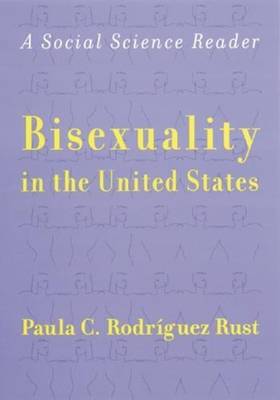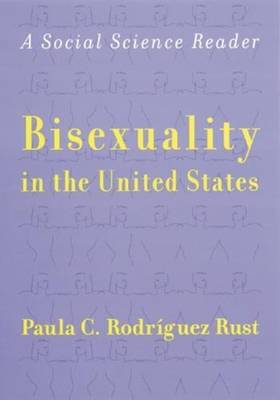
- Retrait gratuit dans votre magasin Club
- 7.000.000 titres dans notre catalogue
- Payer en toute sécurité
- Toujours un magasin près de chez vous
- Retrait gratuit dans votre magasin Club
- 7.000.000 titres dans notre catalogue
- Payer en toute sécurité
- Toujours un magasin près de chez vous
Bisexuality in the United States
A Social Science Reader
78,45 €
+ 156 points
Description
For years bisexuality was considered merely a transitional stage between a person's presumed heterosexuality and "true" homosexuality, or vice versa, and was thereby regarded with suspicion by the lesbian and gay community and contempt by the "straight" world. The study and understanding of bisexuality has surpassed the stereotyped representations of previous eras (e.g., Basic Instinct), but few books attempt to seriously engage the subject as a whole. Paula Rust at last rectifies this absence in the literature by presenting the first interdisciplinary and comprehensive review of social scientific research and theory about bisexuality.
With contributions by sociologists, psychologists, historians, political theorists, and others, the book yields an overall picture of what we know, and what we don't know, about the subject. The book provides a wealth of information about the lives and experiences of bisexual people. Articles cover early research in which bisexuality was conceptualized as "situational homosexuality," pioneering research on bisexuality as an authentic sexual orientation, scholarship on bisexuality in the context of AIDS research, the phenomena of "bisexual chic" and biphobia, queer theory, and the contemporary relationship between academia and political activism. Selections include theoretical and empirical studies from social science perspectives as well as popular writings about the growth of the bisexual movement in the 1980s and 1990s.Spécifications
Parties prenantes
- Editeur:
Contenu
- Nombre de pages :
- 682
- Langue:
- Anglais
- Collection :
Caractéristiques
- EAN:
- 9780231102278
- Date de parution :
- 25-10-00
- Format:
- Livre broché
- Format numérique:
- Trade paperback (VS)
- Dimensions :
- 178 mm x 254 mm
- Poids :
- 1170 g






